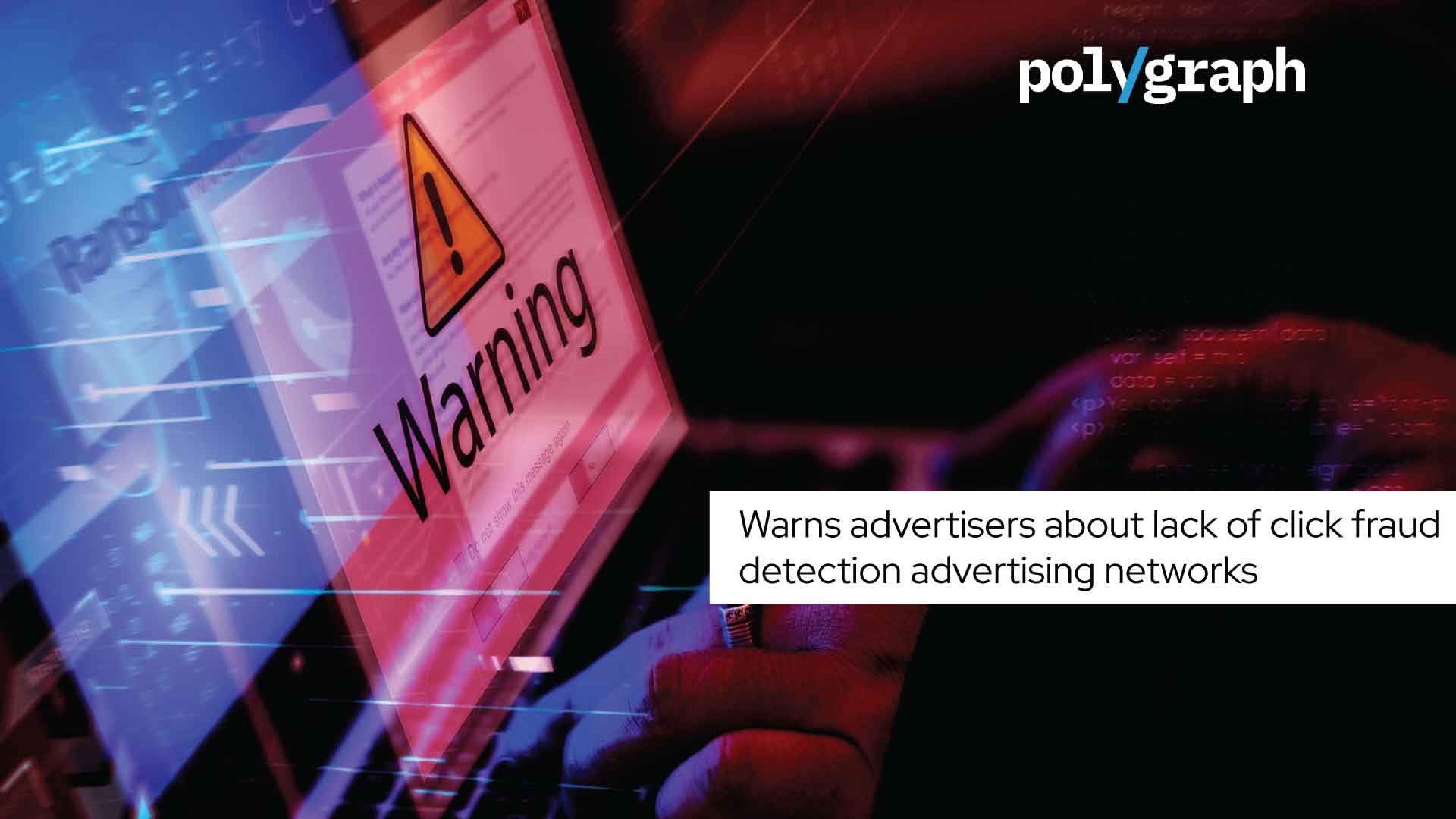

advertising
Polygraph: Don't Rely On Advertising Networks To Protect Your Ads From Click Fraud
Polygraph: Don't Rely On Advertising Networks To Protect Your Ads From Click Fraud
 GlobeNewswire
GlobeNewswire
Published on : Nov 21, 2022
Many advertising networks are doing little to no click fraud detection, leaving advertisers at risk of significant losses
Click fraud prevention firm Polygraph is warning advertisers about the lack of click fraud detection at many advertising networks.
According to Trey Vanes, Polygraph's head of marketing, many advertising networks are doing little to no click fraud detection.
"Many advertising networks aren't making an effort to detect click fraud," said Vanes. "This includes a major advertising network who are doing no click fraud detection in real-time or retrospectively. What this means is advertisers are not being protected from fake clicks, and if they complain, nothing is done about it.
"It's a free-for-all for scammers," added Vanes.
Click fraud is a sophisticated internet crime which steals tens of billions of dollars from advertisers every year. Criminals create websites and monetize the content using adverts. Every time one of the adverts is clicked, the advertiser pays money to the advertising network, which is then shared with the scammer. To maximize earnings, the scammers create bots - software pretending to be people - and program them to visit their websites and click on the ads. The bots generate thousands of fake clicks every day, resulting in massive losses for advertisers, and huge profits for criminals.
"Click fraud can be detected," said Vanes. "Polygraph is able to detect even the most cutting edge click fraud. This includes off-the-shelf and custom made bots, forced clicks, invisible websites, and companies trying to waste their competitors' ad budgets.
"We have customers who were getting thousands of fake clicks every month. None of these clicks were being detected by a major advertising network, and when presented with the evidence, the advertising network still wouldn’t admit the clicks were fake.
“Polygraph was able to identify which websites were generating the fake clicks, and block those websites from being able to display or click on our customers’ ads. If these customers hadn’t come to Polygraph for help, they’d still be wasting thousands of dollars every month on click fraud,” said Vanes.
Vanes says it is a problem many advertising networks do not appear to understand click fraud.
"Why are so many advertising networks struggling to detect even the most basic click fraud? It's not believable they don't know what click fraud is, and don't know how to detect it.
"As an example, there's a type of click fraud which makes both the criminal and advertisers' websites invisible, and code is used to generate fake clicks on the ads. Detecting this type of click fraud is trivial, and can be done in real-time or retrospectively. A major advertising network isn't detecting these fake clicks, and considers the clicks to be valid.
"It's a mistake to think most advertising networks are protecting you from click fraud," said Vanes.
Polygraph helps advertisers detect click fraud, prevent click fraud, and apply for refunds from the advertising networks. Advertisers are shown which websites are responsible for the fake clicks on their ads, which of their ad keywords are being targeted, and the details of every fake click is provided so advertisers can apply for refunds at the advertising networks.
Polygraph makes it easy to block click fraud websites, remove high risk ad keywords from campaigns, and submit refund requests to the advertising networks.




